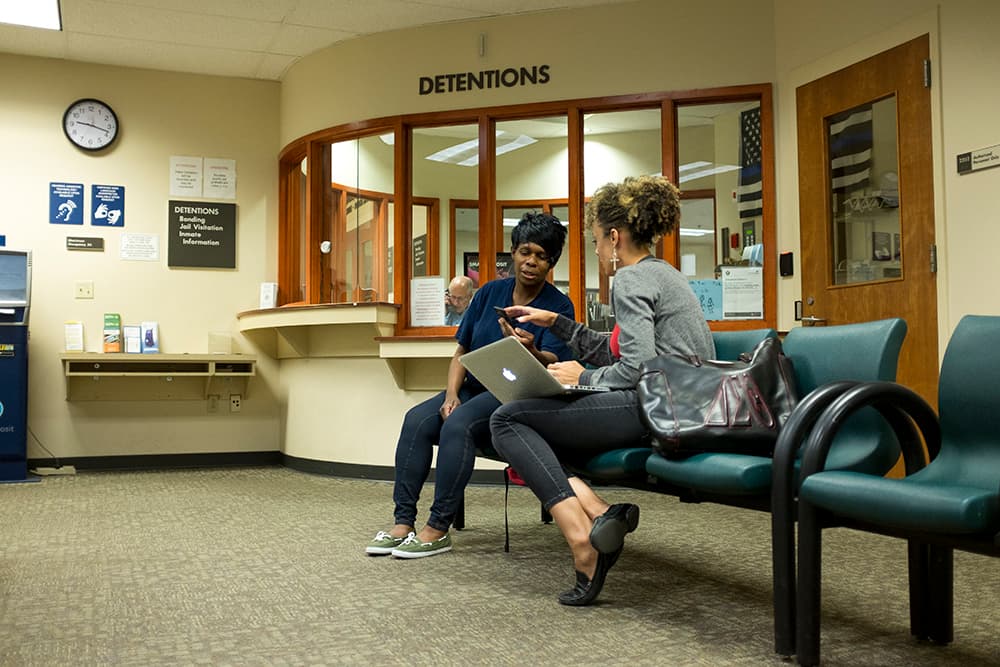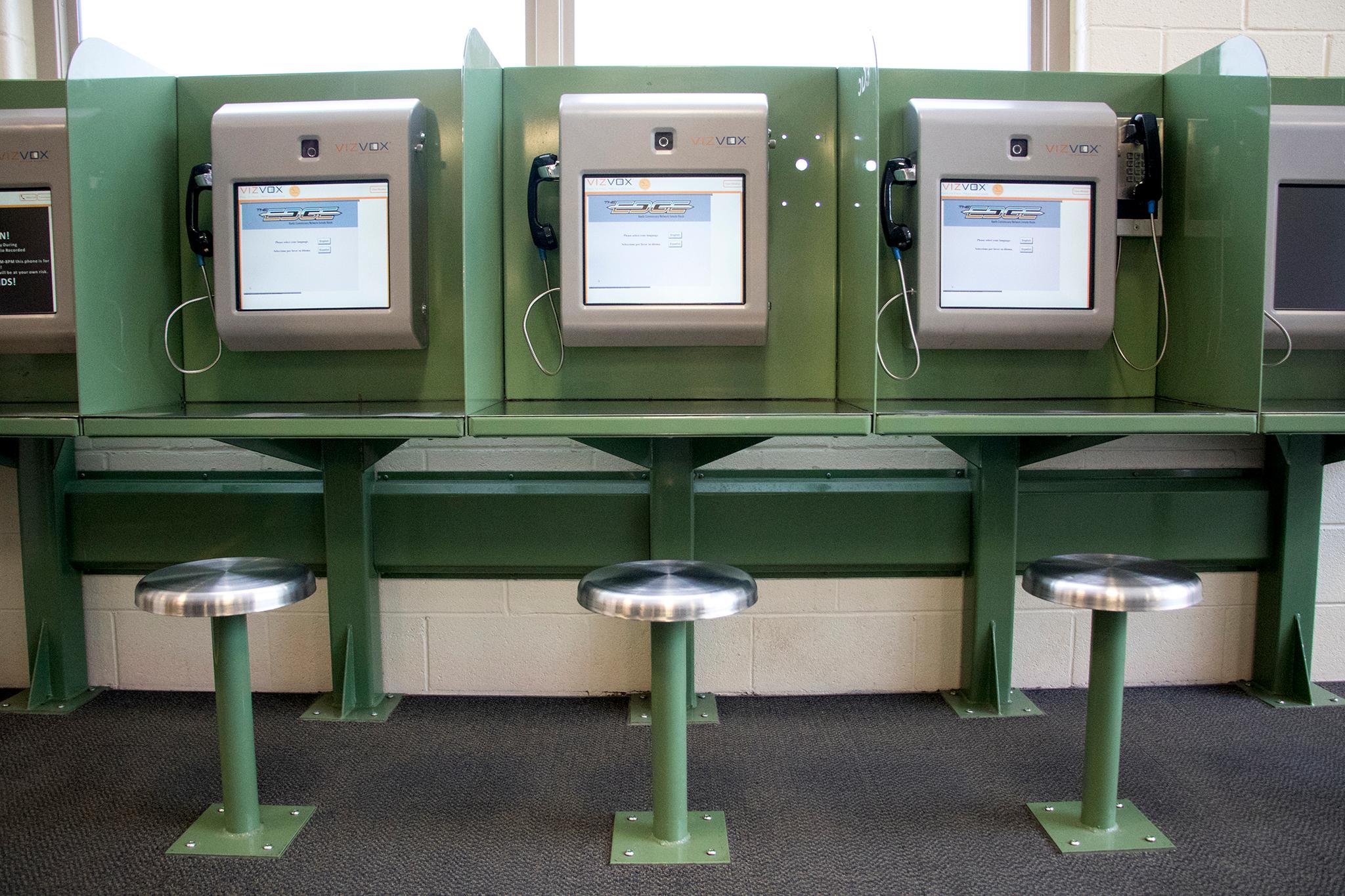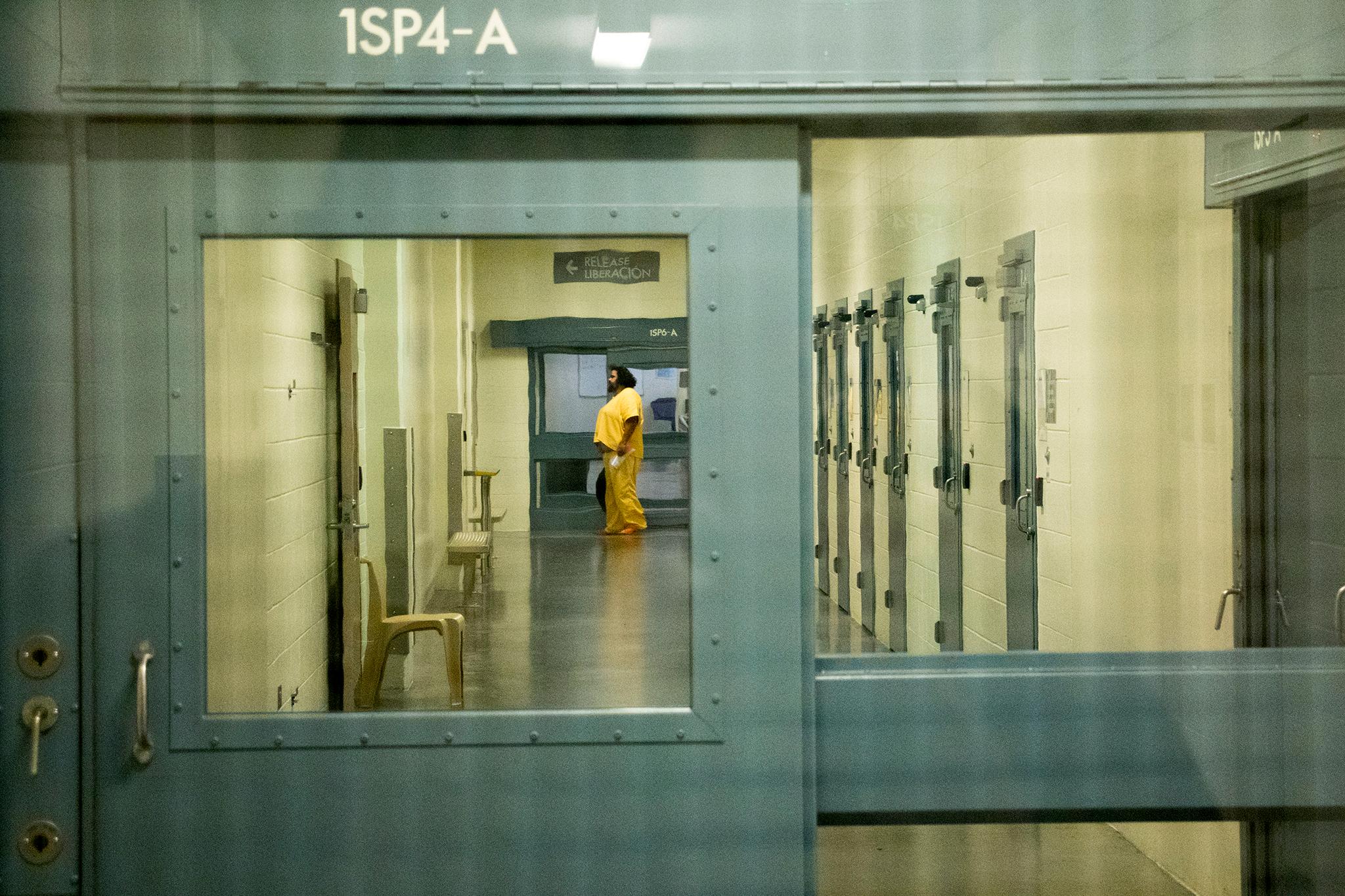It's been 13 years since inmates at the Denver County Jail have been granted a hug or a handshake from family members. That policy will change come 2020, paralleling a change in how the Denver Sheriff's Department regards the importance of human touch.
The rule change will be a reversal of a 2005 policy that stripped inmates -- including mothers and fathers -- of their right to have physical contact with outsiders. Back then, deputies feared contraband getting smuggled in and violence between domestic partners, so they installed video phones inside the jail to keep families and friends connected.
Turns out replacing human contact with pixels was no replacement at all.
"We began to understand how that connection between individuals and their families is furthered by that personal touch," said Elias Diggins, chief of operations for DSD and president-elect of the American Jail Association.
Hazel Dew understands the role of physical touch firsthand. She spent time as an inmate in Denver County Jail when deputies still allowed contact visits, and again after she had to talk with loved ones through a grainy video phone for a fee. Dew called the physical presence of loved ones "inspirational."
The difference is the human contact, seeing their faces and hold a conversation verbally. that means more than anything that there is someone there to support you. Versus that TV screen, it’s not personal.
"Your family is your best supporter even if they're angry that you are where you are," Dew said. "You can sit across and hold their hand. That's important to keep you going during that time."
Diggins considers himself and his staff "jail scientists," he said. His goal is to have people leave jail and leave jail for good. Fraying ties between prisoners and their kin doesn't serve that purpose, though. How can people succeed on the outside if they lose important connections while sitting on the inside?
They can't, really, said Elisabeth Epps with the Colorado Freedom Fund, an organization dedicated to getting poor people out of jail and reforming the criminal justice system.
"In short periods of time ties are broken that dictate whether or not they have a couch to sleep on when they get out," Epps said.
Unlike prisons in the correctional system, jails are for short-term stints. The average stay in Denver's jails is 40 days, according to DSD. (Inmates can stay for a couple of years if the trial drags.)
It doesn't take long for prisoners' mental health to suffer from the sudden isolation.
"A few days in, man. Depression, those things come on really fast," said Epps, who has been an inmate herself.

On the other hand, more interaction with friends and family can reduce recidivism rates and improve outcomes after an inmate re-enters society, studies show. And physical interactions with loved ones can boost mental health and family bonds. The new visitation rules will especially benefit mothers and their children, Diggins said, who have a higher likelihood of going to jail than kids with free parents.
Diggins visited Las Colinas, a women's detention center in San Diego that he considers to be a national model for its visiting areas. He thinks Denver's new facility will have the power to keep ties to family and community in a way that reduces recidivism, but also weaken the cycles of generational imprisonment.
Dew, who struggled with addiction, said the the contact visits "absolutely helped once I got out." It's hard to keep true human ties with people when you're viewing them through a screen, she said.
Still, only some inmates will get the privilege of "contact visits."
DSD will use the visits as an incentive for good behavior. And the offer will only be extended to people deemed "low risk," according to Diggins.
Epps said contact visits should be the default, not a carrot for a few.
"Risk is too theoretical," Epps said. "I don't think it should be an incentive where only some are able to have visits at certain times."
The critic of the jail system said she was excited, nevertheless, and said she had a strong sense of cautious optimism.
Better video chats and cheaper phone calls are coming too.
A Denver City Council committee is poised to approve a contract extension this week for Securus Technologies, which provides video and phone call service for inmates.

The video quality will be better and family members will be able to call in from home on a tablet or computer -- so they don't have to visit the jail to see inmates.
The phone calls will be cheaper, too: .086 cents a minute with a maximum of $2.60 for 30 minutes. That's down from a flat rate of $2.60 no matter how long a prisoner talked.
This is just one part of the conversation about getting people into the community better than when they came for us.
"This component is just one part of that larger piece of us trying to get people going back to the community better than from when they came," Diggins said. "If you lock people up and throw away the key, if you just warehouse them, that does not help them become sober or figure out what their employment skills might be."













